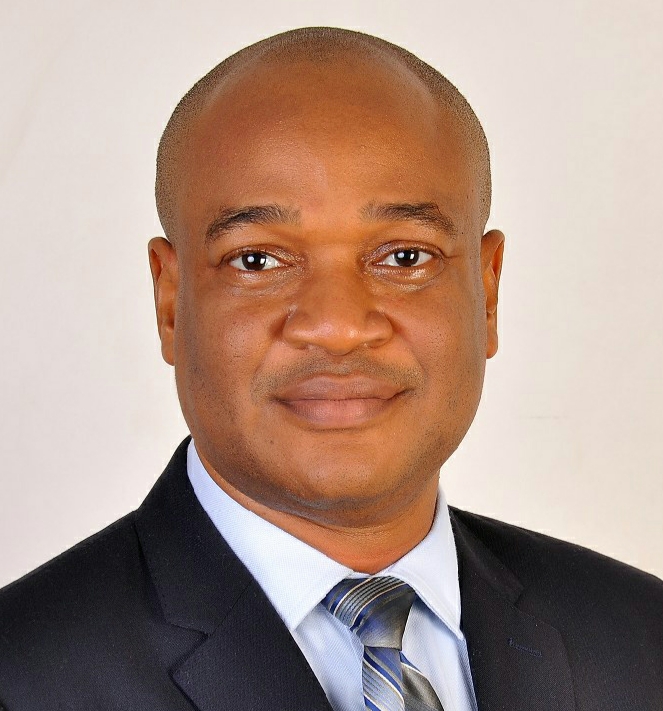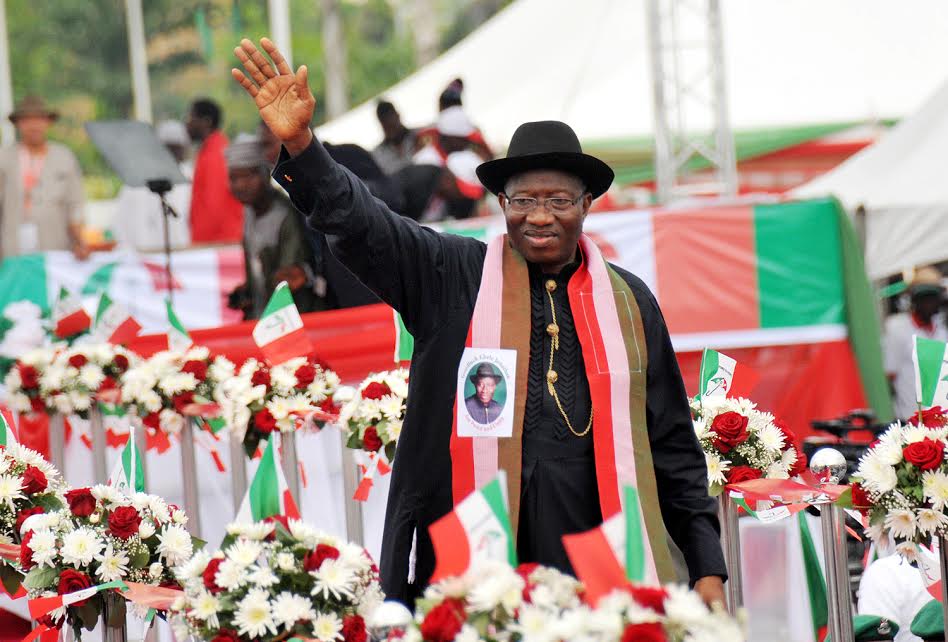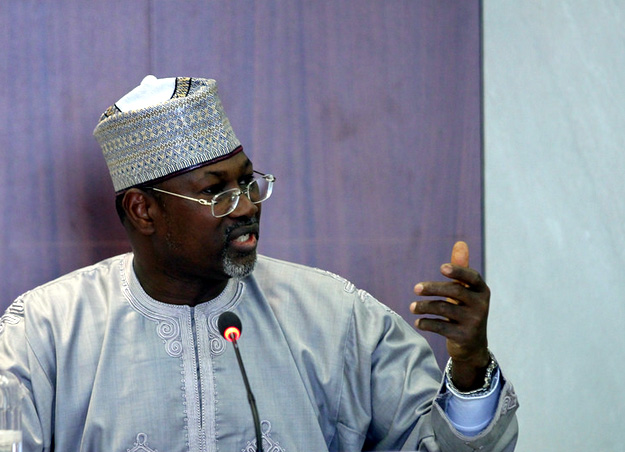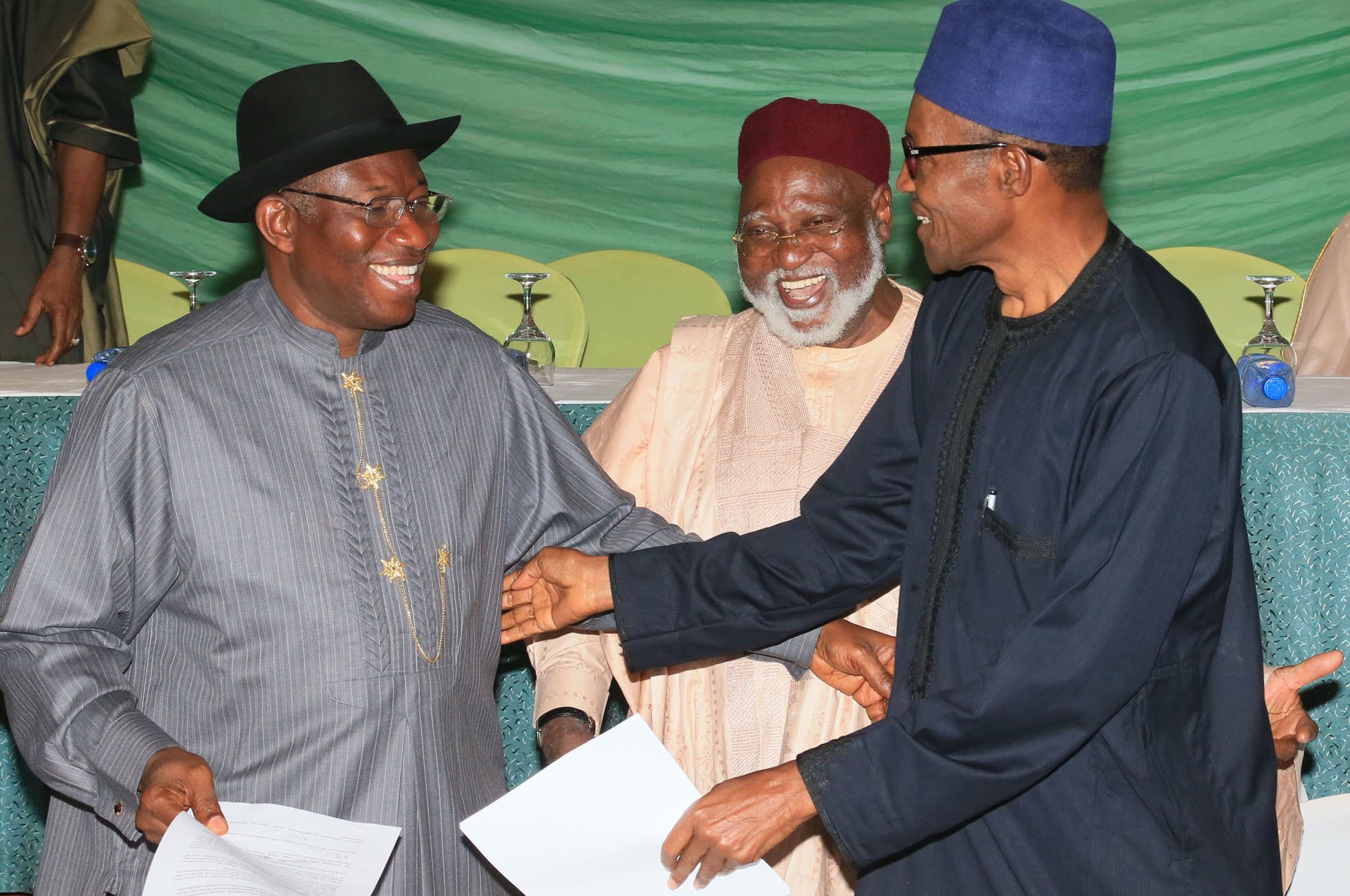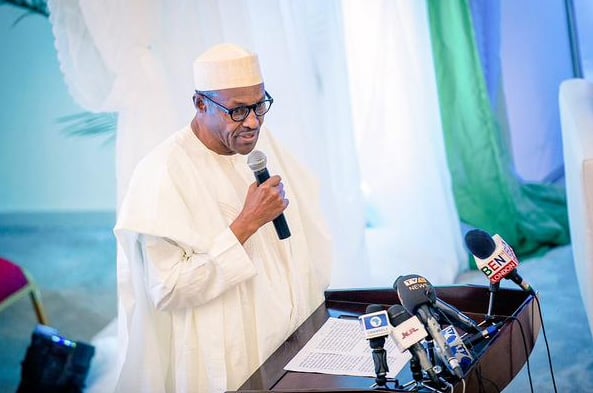A child will be born in a rural village in Nigeria today. The mother of that child will hold, feed, comfort and care for her new baby – just as any mother would do anywhere in the world even if the long-awaited presidential election in Nigeria is finally around the corner. So, as Nigerians prepare to the head to the polls, it is safe to begin closing arguments. President Goodluck Jonathan has been in office since May 5, 2010, first to complete the tenure of late President Umaru Yar’Adua and then he commenced his own term on May 29, 2011. In his quest for re-election, the President must face the ultimate test of an incumbent – an anatomy of his 5-year presidency. In carrying out this, three questions come to mind: What did he meet as President? What did he do as President? What kind of progress have we made during his presidency?
Without a doubt, the emotions that swept President Jonathan into office in 2011 raised expectations that spanned from wall to wall. But if we were to tame these expectations, a fit and proper approach would be to wrap them around the economy, governance and security. But this election season offers Nigerians an opportunity to shift our paradigm so that we can discuss our nation as a whole because countries develop by building and strengthening institutions in order to advance progress. According to America’s President Barrack Obama, nations need strong institutions not strong individuals. So my anatomy of the Jonathan presidency’s testimonial on the economy, governance and security will be viewed in large part from the prism of the primacy of institutions because they unlock binding constraints to progress. In the words of former Brazilian President Fernando Cardoso, “it is only institutions, and not individuals, that can reliably sustain democracy over the long haul.” I also acknowledge that reasonable people tend to switch off when they hear exaggerated claims, either about failure or success.
I want to begin with the economy, which is the bread-and-butter of any society because it concerns the affairs of the belly. No administration should remain a day longer in office if it is not addressing the wellbeing of the citizenry. Over the years, economists have devised a number of indices to measure the economic performance of countries and governments. Even though most of them are favourable to the Jonathan administration (according to data from the World Bank, United Nations and their subsidiary institutions), these statistics can be contentious especially in developing countries such as ours. So, since I am not an economist, I would rather use pedestrian means to assess the Jonathan presidency on the economy.
In a normal country, the easiest test of the economy is to measure production and consumption. Production, especially as it relates to the real sector – agriculture and manufacturing. We know that as at 2010, Nigeria was spending about N1.3 trillion per annum on importation of rice, wheat, sugar and fish alone. Indeed the Nomura Index ranked Nigeria as the 4th most vulnerable country in the world to food price increases. But as at June 2013, local production of rice paddy was 1.76m metric tonnes and there are now 14 new large-scale integrated rice mills established by private investors. During the 19th Nigerian Economic Summit, I met a number of young agribusiness entrepreneurs – nagropreneurs – that are spinning prosperity through agriculture. One of them, Mafindi Isa Tafida is partnering with his father in their Famag-Jal Farms to produce Halal-certified beef that is good enough to go international. Overall, an additional 15m metric tonnes of food has been added to our domestic food supply in just 2 years. How do all these affect the average Nigerian? Apart from the hundreds of thousands of jobs created, it is noteworthy that the prices of staple food such as rice, yam, garri, vegetables, fruits, poultry, fish, beef, etc. remained stable and maintained previous year’s prices during the last festive season. This is a very rare occurrence in our clime especially given the turbulent exchange rate volatility in December, a clear indication that local production has increased. Also, you are more likely to buy Made-in-Nigeria products in stores now than in 2011. Don’t take my word for it, visit one out there and see for yourself.
Advertisement
Now this takes me to consumption, let us look at consumer spending because it will reveal something. Since we are not able to measure it in naira terms, a few indicators can suffice. Between 2011 and 2014, large retail outlets for the middle class such as Shoprite have increased in number extending away from the traditional Lagos and Abuja to such places as Enugu, Illorin, Ibadan and Kano while building new stores in Owerri, Benin, Effurun, Onitsha and Umuahia. Online shopping platforms like Jumia and Konga which opened in 2012 are making record sales and creating thousands of jobs in just 2 years. PayPal has just reported that in 2 years, Nigeria has become its second largest market in Africa. Also many more middle-income earners are buying their own homes through mortgages now than in 2011 just as many more middle-income earners are buying brand new cars with increased access to auto-loans due to stronger financial system stability, and thanks to the new Automotive Policy, they are more likely to buy a brand new Nissan car rolled out in Nigeria than one rolled in from Japan. These are economic activities powered by the middle class. They are the outcomes of deliberate policies put in place to deliver the right results.
To underpin positive developments in the economy, a country needs infrastructure, especially power, transportation and ICT. Apart from its domestic use, electric power permits the use of modern technologies and processes, especially in the services and real sector. The Electric Power Sector Reform (EPSR) Act which unbundled the National Electric Power Authority (NEPA) into 18 separate entities: 6 generation companies, 11 distribution companies and 1 Transmission Company was passed into law in 2005. For 5 years, the tenets of the Act were not implemented and that sector remained under the stranglehold of inefficient state control. In August 2010, President Jonathan launched the Roadmap for Electric Power Sector Reform and just 3 years later in October 2013, the unbundled companies were fully privatized despite great resistance from vested interests and the process received accolades from the international community. Just 1 year ago, in February 2014, they were handed over to their new owners. Today, even though the megawatts are not yet in their desired tens of thousands, we know that quality investments by the private sector and the implementation of the gas masterplan (thank goodness it is now in place) will deliver those megawatts in the kind of exponential increase we saw with phone lines. In a short while, Nigerians will not only begin to see improved power supply in their homes, they will see its effect in the real sector that will deliver cheaper goods and services to us. This will surely happen because the binding constraints have been removed.
On transportation, we know that by efficiently moving people, goods and services, the railways add value and spurs further growth. The Western Narrow Guage Line has been fully rehabilitated and the trains now run from Lagos to Kano more frequently and efficiently passing through Ibadan, Osogbo, Illorin, Minna, Kaduna and Zaria while the standard guage line is under construction. The Eastern Narrow Guage Line now runs more frequently and efficiently from Port Harcourt to Gombe through Aba, Enugu, Makurdi, Lafia and Bauchi. The first phase of the Central Standard Guage Line, the first in West Africa, has been completed to run from Kaduna to Abuja. It will ultimately go all the way through Itakpe and Ajaokuta to Warri. In the roads sector, Nigeria has about 35,000 km of federal highways. As at 2011, only 5,000 km were in good condition. Today, an additional 20,000 km are now in good condition. A drive across the country easily reveals that our cars are now more likely to be on a smooth road than on potholed and dilapidated ones across our interstate federal highways. Road transport users have reported a sharp drop in vehicle maintenance just as the Federal Road Safety Commission reports an equally sharp decline in road accidents. All these have helped in improving the quality of life of the average Nigerian. To strengthen these developments in rail and road transportation, the President has sent very important Bills that had been gathering dust in executive shelves before his presidency to the National Assembly. They will ensure that the gains made will be institutionalised, especially in the areas of maintenance and new developments. Also by creating a Ministry for ICT, the government has paced up our linkage to the wired world and there is now wider and deeper internet penetration for the good of the economy.
Advertisement
Without good governance, positive developments in the economy will not be sustained and sustainable. Good governance is built on accountability, openness and the rule of law. These are, in turn, also built on institutions and not just the goodness of man. In a 2004 article, I wrote that building institutions require qualitative human capital, increased social capital, modern technologies as well as (competent and independent) leadership. In the last four years, President Jonathan has strengthened the institutions necessary to deepen good governance. He signed the Freedom of Information Bill into law, which his predecessors did not do. Just like in some other societies, this now gives Nigerians the power to interrogate the activities of their government. He appointed competent people to head the Independent National Electoral Commission, National Human Rights Commission and Economic and Financial Crimes Commission to deepen electoral reforms, stop perennial human rights abuses by supposed agents of the state thereby opening up the public space and tackle that incubus called corruption. In doing these, he has invited the Nigerian people to join government in the task of building our nation, a task that is better achieved together. Take INEC, as an example, just a few years ago, we were witnesses to the frequent meddlesomeness by the presidency in the affairs of the Commission wherein the Chairman was seen to be taking orders from ‘the Villa’. Today, Prof. Jega can attest that he has never gone ‘there’ to take any instructions from anybody whatsoever. The same goes for the NHRC that has consistently released statements and reports that may not sound good to government but which has had the effect of changing behaviours not removal from office as was the case with Mr. Bukhari Bello during Obasanjo’s presidency. At the helm of affairs in EFCC today is a man that was seen to be the backbone of the Commission during the Ribadu days and so with the FoI Act in place the instruments of eviscerating corruption have long been aligned for a responsive citizenry and civil society to act. However, there is still work ahead to be done and if the next set of reforms are carried out in the Nigeria Police and the Judiciary along with the cooperation of nongovernmental organisations like the Nigeria Bar Association wherein some (senior) lawyers apply legal gymnastics to diffuse corruption cases, Nigeria will be on track to winning the war on corruption. A good part of that work now lies with the citizens and the civil society. In addition, new technologies such as IPISS are constantly being deployed to block leakages and reduce waste in government spending.
Of course, the security of lives of every Nigerian must be the paramount purpose of government. While no government can guarantee total security of lives of all its citizens, every effort must be deployed towards ensuring that citizens feel safe and secure in their country. The insurgency in the North East part of Nigeria has been the major security challenge for this administration. For long, the gory activities of these criminals have terrified our psyche and bled our hearts. As I write these lines, our Chibok girls are still in captivity. The Nigerian people have a right to expect their government to provide effective security, protect them from these criminals and bring back our girls alive.
Unfortunately, with the “clash of civilizations” predicted by Samuel Huntington, similar activities in differing degrees and colourations have been part of our globalized world since Francis Fukuyama’s “end of history”. This literally began when 19 men beat the American security and intelligence apparatus to fly 4 airplanes into American cities on a fine September morning. Governments across the world are struggling to understand and confront this global phenomenon. It has not been easy but one successful attack by these criminals captures our imaginations and rattles our minds. However, to understand a difficult topic like this takes patience and care. More than ever before, the times demand it because the alternative—politicized, haphazard evaluation, without the benefit of time and facts—may well result in a country that is even more at risk.
According to the National Security Adviser, Col. Sambo Dasuki, other nations that have been directly affected by terrorism have shown us how difficult it is to eradicate because the terrorists utilize their abundant imagination for evil, to inflict the maximum horror on communities conscious of the fact that states must be guided in their responses by rules, the law, their own values and respect for civilian lives and property. I also agree with him that any response to terrorism must be long term, holistic and robust enough to address its root causes, which must be guided by a law and order approach that utilizes both hard and soft methods. The fact that they embed themselves within civilian populations helped to prolong the situation. In addition, historical deficits in our military institutions including the fact that the last significant procurement of equipment was done over two decades ago, the inability of the government to buy the weapons needed in a timely manner, the need for a philosophical as well as operation shift from conventional warfare to asymmetric warfare in towns and communities teeming with millions of civilians, the delay in securing a regional military cooperation as well as human rights accusations greatly affected the military campaign. Fortunately, with those challenges now resolved, the security situation is being reversed in an efficient and effective manner. The Nigerian military has restored peace and security in 36 towns that were under occupation by the terrorists. The men, women and children driven from their land are returning home. The government has also deployed counter-radicalization and de-radicalization mechanisms to stop the recruitment of new terrorists. Today, there are about 125 Almajiri schools and this means that young, promising boys will rather be found in schools than on the streets available to be recruited. Additionally, 9 out of the 12 newly established federal universities are in the Northern part of the country.
Advertisement
But while we are still on education, it is worth mentioning that the Federal Government has also consistently made huge investments in basic education through counterpart funding grants by the Universal Basic Education Commission to states and local governments. The Tertiary Education Fund (TETFUND) has made our universities, polytechnics and colleges of education- federal and state – to once again become institutions of research and advanced learning. Their laboratories and research capabilities have been greatly enhanced in the last 4 years. Again, don’t take my word for it, stop by any of them and see for yourself.
I end as I must with the National Conference 2014 which was convened by President Jonathan. It was very symbolic in a number of respects. First, it defied the odds that such a Conference could be convened with such a diverse group of Nigerians. Previous attempts at a National Dialogue had excluded certain segments of the society for fear of the unknown. Secondly, the rigour in the debates at plenary as well as in the committees was very reflective of today’s Nigeria for our tomorrow. Thirdly, the means of resolving the most contentious issues were managed in such a manner to prove that we have come of age. Fourthly, the depth and quality of the Resolutions revealed the vast frontiers of our possibilities as a nation. Finally, the successful end to the Conference proved that Nigerians can indeed talk amongst each other and come to reasonable conclusions without rancour or division.
It was indeed a good array of Nigerians who might not have made it to the Conference through elections, not because they cannot win at such elections but due to the frailties and inadequacies of our electoral process at the present times. After four and half months of rigorous negotiations, discussions and debates, the National Conference submitted its Report to the President with over 600 Resolutions. These Resolutions addressed a wide range of economic, political and social issues and they were compartmentalized into three areas: constitutional, legal and policy. It is indeed a long list of revolutionary decisions that have embedded in them the architecture of a new Nigeria. Our country must always be one that takes a long look at the future. One fundamental basis for progress and development in a society is the need for a Compact, according to which human beings begin as individuals in a state of nature, and create a society by establishing a contract whereby they agree to live together in harmony for their mutual benefit, after which they are said to live in a state of society. Such a National Compact, which can also be referred to as a Social Compact, is not a just document written by the government as a development agenda and passed on to the people. It is also not just a country’s Constitution, even though it can be embedded in the Compact. According to Yeoh Lam Keong, the Vice President of the Economic Society of Singapore, “without a healthy and stable social compact, the social cohesion needed for national identity and belonging is precarious. Political legitimacy and its vital twin, trust in governance institutions and policy, likewise tends to become weak and dysfunctional. A healthy social compact is therefore fundamentally necessary if we are to make a successful transition to a viable, resilient and cohesive nation.” The process for developing such a Compact varies but one very acceptable means is through a national dialogue such as the National Conference 2014.
Just as the framers of the United States constitution, yes, the delegates to the Conference were not elected too. But the spread and quality of their representation confers a lot of legitimacy to the outcome of their deliberations. We, the people, should now own it. It should be a first major step to our social compact and the evolution of the Nigeria of our dreams and it stands to the credit of this President.
Advertisement
So are we really better off now than we were 4 years ago? My straight answer is, yes, and the facts speak for themselves. Recall that I began with a reference to a child born in a rural village in Nigeria. Let us remember this child and then our broader goals of modernizing our society, enthroning social justice, ending poverty and creating equal opportunity for all will be very achievable. That is why the outcome of this presidential election matters. We should re-elect President Goodluck Jonathan. He has kept our economy on a path to sustained and sustainable growth. He has strengthened institutions of governance to give power to the people. He has reversed the situation especially in the North East towards achieving long-term peace and security. He has brought Nigerians together to dialogue on our past, present and future. We should not take the work done and the results it produced in the past 5 years for granted. We should look to the future with the knowledge that we will always do better and that beneath the surface lies the fate of individual human beings like that child born today.
Follow me on twitter @nnannaude
Advertisement
